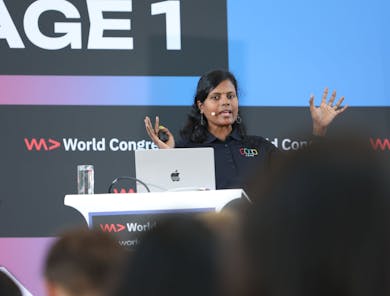In today's fast-paced tech landscape, AI has begun to play an increasingly significant role, reshaping the way developers create software. As we delve into this transformation, we uncover both opportunities and challenges that AI brings into the world of software development. This post explores AI’s impact on developers, highlighting how it could potentially redefine the craft of coding and what it means for the future of software engineering.
.jpeg?w=720&fit=max&dpr=2&auto=format)
The Shift from Manual to AI-Generated Code
Historically, software development involved meticulous hand-coding, where developers spent countless hours writing and debugging each line of code. However, with the advent of AI and machine learning, we're witnessing a paradigm shift. AI-powered tools like Copilot and ChatGPT are transforming how code is generated. Now, developers can leverage AI to automate repetitive tasks, allowing them to focus on more critical, complex problem-solving.
Developer Productivity Enhancement
AI tools optimise developer productivity by reducing the time spent on mundane tasks. For example:
- Automating code generation: AI can write boilerplate code, which frees developers to concentrate on more sophisticated logic.
- Debugging assistance: AI-driven tools can identify and fix errors, minimising downtime and enhancing code quality.
- Code recommendations: These tools suggest improvements and optimisations based on best practices and past coding patterns.
This productivity boost leads to faster development cycles and more robust applications, but it also introduces potential challenges, such as a shallow understanding of underlying code principles among developers.
The Challenge of Shallow Coding Skills
While AI simplifies coding, it might inadvertently lead to a more superficial understanding of programming for new developers. The ease of generating code without deep engagement raises questions:
- Do new programmers truly understand the code they're working with?
- Is there a risk of over-reliance on AI to the detriment of fundamental coding skills?
These concerns suggest that while AI tools are beneficial, they might also create gaps in knowledge, especially for those who rely exclusively on AI without striving to understand the logic behind the code.
Bridging the Knowledge Gap
To mitigate these potential gaps in understanding, developers should:
- Engage actively with code: Encourage developers to write and understand code instead of just generating it through AI tools.
- Continuous learning: Promote learning about the underlying architecture and reasons behind code suggestions.
- Code reviews and peer collaboration: Foster environments where developers discuss and critique code to bolster comprehension.
AI as a Collaborative Tool, Not a Replacement
AI should be seen as a powerful ally in the developer's toolkit rather than a replacement for human ingenuity. While AI brings efficiency, the human aspect remains essential for creativity, critical thinking, and understanding the broader context of software solutions.
The Role of Developers
Developers are not merely code writers. They are architects who solve problems, design systems, and ensure software scalability and security. In an AI-enhanced landscape, their roles can evolve to:
- AI Workflow Customisation: Tailoring AI tools to fit specific project needs and integrate seamlessly into existing workflows.
- Focus on High-Level Problems: Shifting focus from code-writing to software design and user experience enhancement.
- Security and ethics oversight: Ensuring that AI-generated code maintains ethical standards and robust security protocols.
Embracing an AI-Integrated Future
To thrive in a future increasingly flavoured by AI, developers should embrace this change. This includes:
- Adopting AI tools: Utilise tools that augment coding capabilities but ensure they are aiding rather than hindering deeper understanding.
- Cultivating adaptability: Stay abreast of AI advancements and incorporate relevant tools into their everyday workflows.
- Fostering collaboration: Work in tandem with AI to brainstorm innovative solutions and leverage the strengths of both human intellect and machine precision.
Conclusion
AI has undoubtedly begun to redefine software development, offering remarkable advantages while posing new challenges. By understanding AI’s role and addressing potential pitfalls, developers can harness these technologies to expand their capabilities and elevate software quality.
For those interested in exploring more about the potential of AI in software development, it's worthwhile to watch insightful discussions like the one featuring Kenneth Auchenberg from this video to learn firsthand how industry leaders are navigating these changes.










